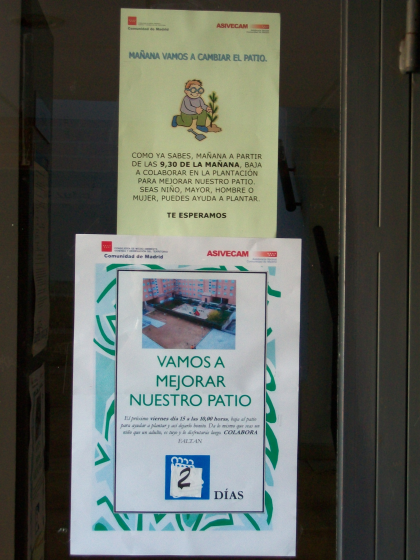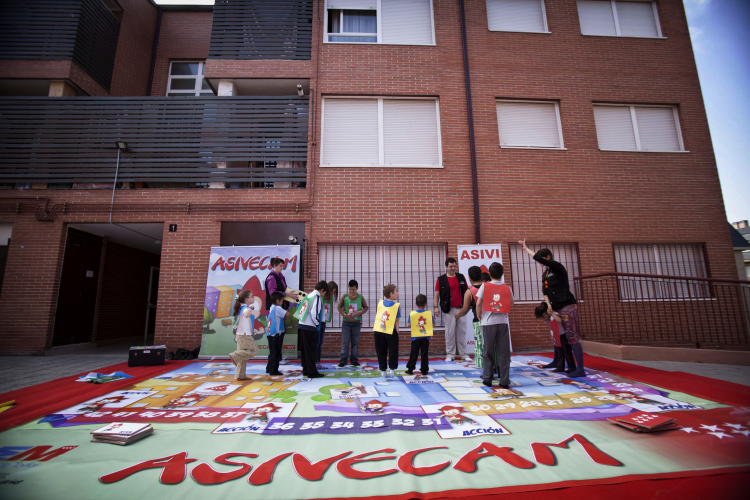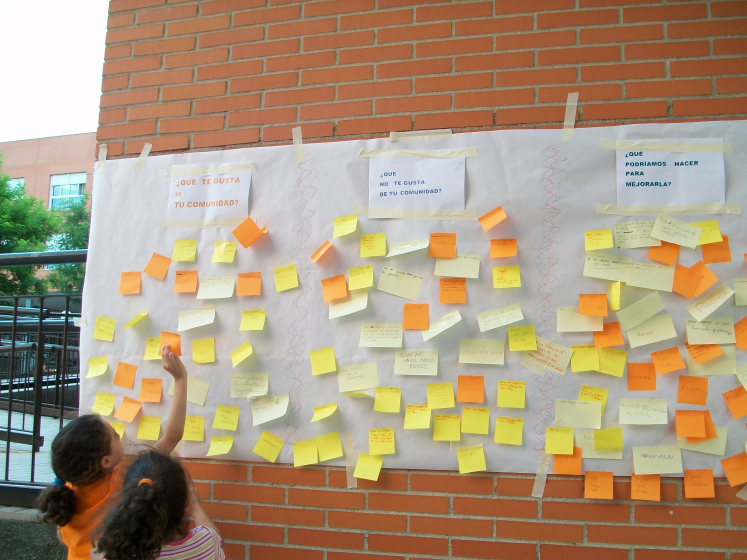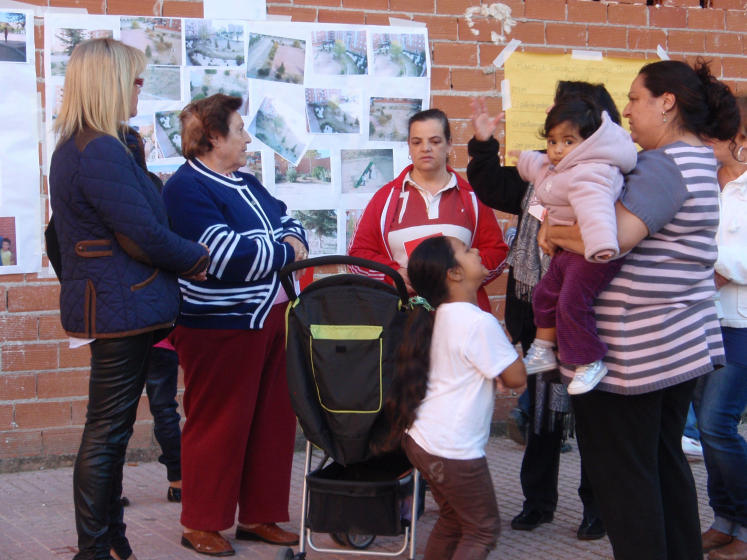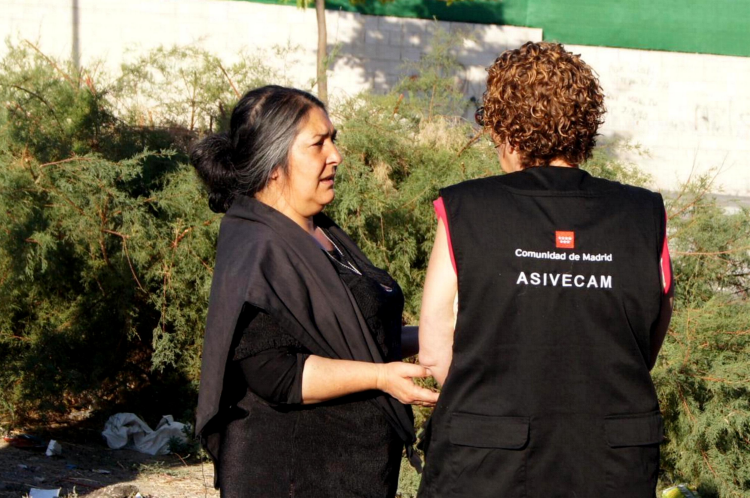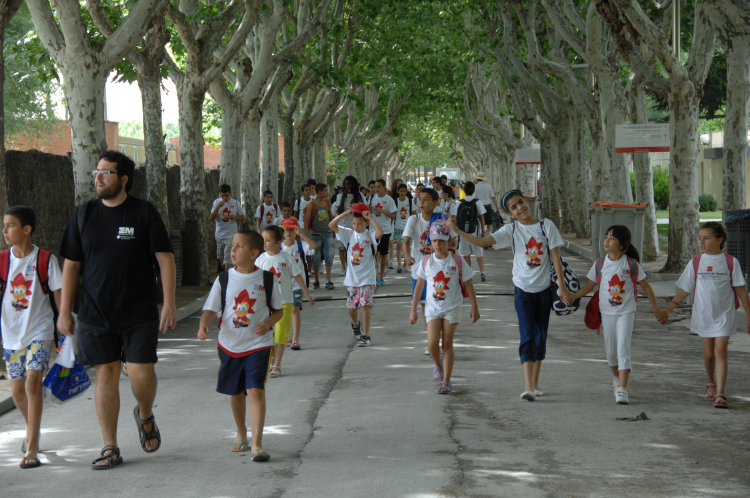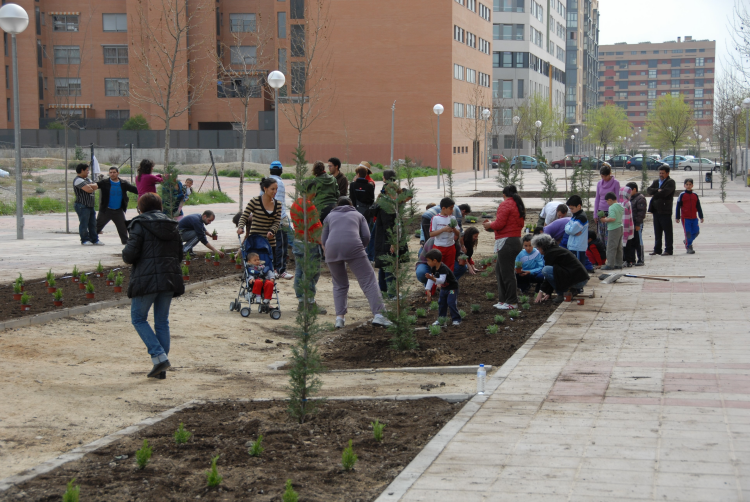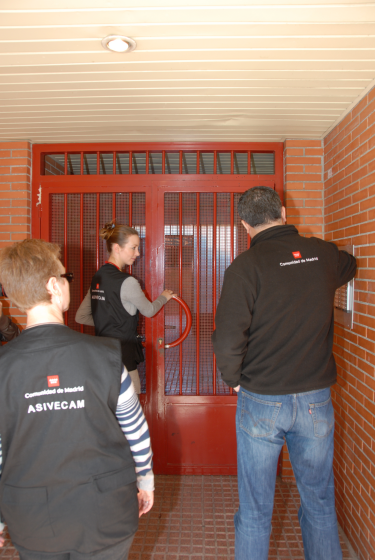ASIVECAM. (Asistencia Vecinal de la Comunidad de Madrid)
We rely on community development model to achieve the social welfare of the population, with their active participation in awareness, assessment and resolution of problems. We start from the community itself, we use and potentiate its own resources and promotion and we work on a network foundation basis. It is intended that local population to become the main party involved in their own improvement and sustainability.
This process is complemented by three lines of intervention:
Community self-organization support
Neighbourhood mediation
Reception, information, guidance and monitoring (RIOS in Spanish)
Actions:
Support and assistance for groups of public-housing residents’ associations.
Joint implementation of the strategies previously decided to be used in order to improve local coexistence among neighbours.
Participative work through questionnaires and local meetings.
Underway processes development monitoring.
Coordination with the existing network in the area. If it doesn’t exist, measures will put in place to promote its creation.
Participative evaluation of the Reception, Information, Guidance and Monitoring process.
INITIAL PHASE
Presentation of ASIVECAM service to communities and to the City Hall: From the start it is intended to involve all parties.
Participative information and diagnosis collection: It includes complaints, problems, conflicts collection as well as environmental awareness and external factors through organizations in the area.
Neighbourhood housing groups of public-housing residents’ associations working proposals: It is necessary that the conducted diagnosis to be consensual and validated by all parties. The time for the Driven Force Group to be put in place has arrived.
PARTICIPATIVE WORK PHASE (ETP in Spanish)
After research - action - participation the time has come to take participative decisions and to define the strategy to be implemented: Full Action Plan (PAI in Spanish) and/or RIOS
PAI:
This is the moment when all agreements will turn into facts. They must rely on institutional support. The performances are:
Organizing the Driven Force Group
Group and community performances
PAI participative assessment
RIOS:
We receive multiple demands daily. In order to better channel them we must discriminate if it is information task related or guidance related. The follow up task appointed does not correspond only to the final result as a consequence of the offered information or guidance but it also has relation to the fact that the individual has fully understood / comprehended it.
CLOSING PHASE
We shall start this phase based on the following indicators:
•The Driven Force Group and the created committees are organized and autonomously functional.
•The objectives as proposed in the PAI have been fulfilled.
•Groups of public-housing residents’ associations are organized and self-managed.
•Coexistence rules has been agreed upon.
•Conflicts are properly channeled.
At this stage the performances to be driven by the professionals at ASIVECAM are related to the follow up process in order to offer support so that communities can move forward.
Modalidad Local social sustainability
Dirección
C/ Basílica, 23
28020 - Madrid
Madrid (Espanha)


